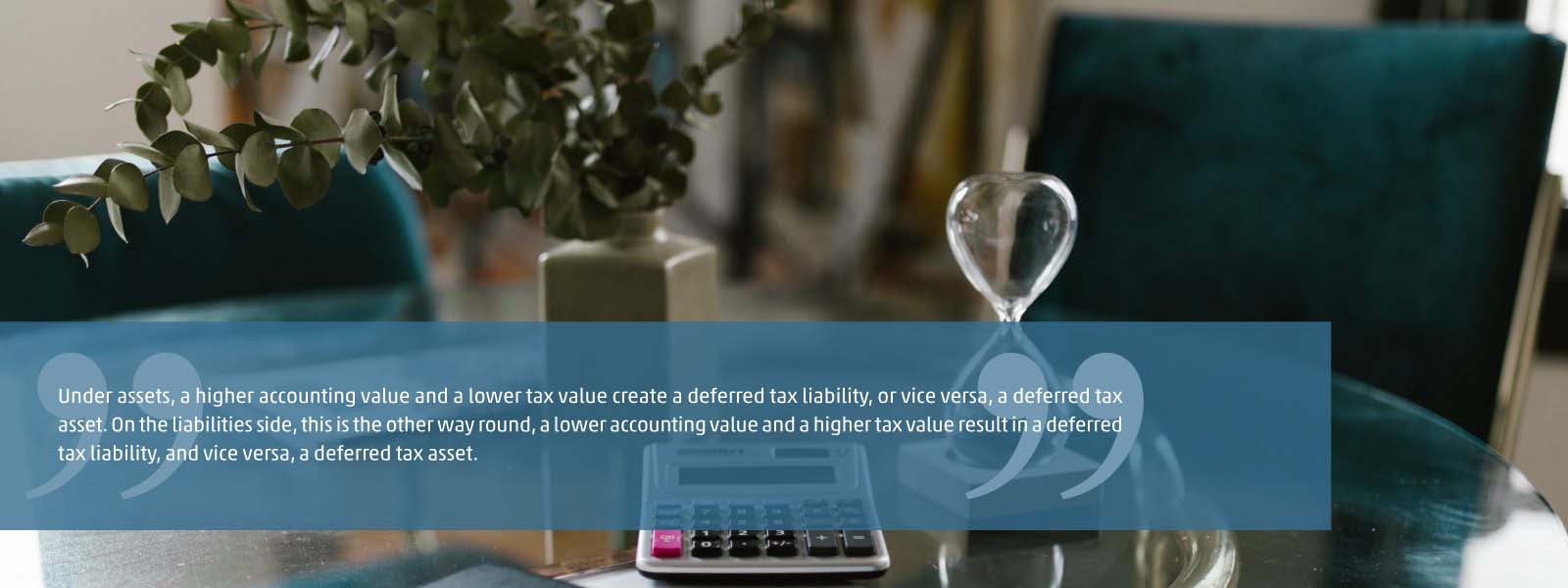The term deferred tax rings familiar to Hungarian experts who are involved in the accounting of Hungarian subsidiaries of foreign groups and preparing their group financial statements, or who work with companies that prepare individual IFRS reports.
Although deferred tax is part of a number of accounting systems, including IFRS, US GAAP, the German HGB or the Austrian UGB, occasionally with minor differences in rules, it is still somewhat foreign to the Hungarian accounting system at the level of individual financial statements.
But what is it all about?
If the value of a company’s assets and liabilities differs for tax and accounting purposes, this will have an impact on the ensuing tax payment liability of the company. The company balances these future tax benefits or tax payment obligations when it recognises deferred tax assets or deferred tax liabilities in its financial statements. Based on the different valuations set out in the accounting and tax regulations, a future tax benefit or tax payment liability may only be recognised if the difference is temporary in nature, and is reversible over time, i.e. the accounting is derived from the difference in timing.
In Hungary, it is less common for accounting systems to be prepared to produce a tax balance sheet similar to an accounting balance sheet, by the mere click of a button. Generally, double-recording only occurs for tangible assets, but differences may arise with many more items. Thus, a tax balance sheet is typically prepared from an accounting balance sheet, taking appropriate modifications into consideration. This tax balance sheet then has to be compared with the accounting balance sheet to identify the items which will impact future tax payments and thus create deferred tax.
Here too, attention must be paid to the fact that not all differences automatically have a tax impact: in line with the above, only items which are considered temporary differences do so. Consequently, permanent or final differences do not trigger such an effect. The latter category mostly comprises expenses not incurred in the interests of the company, tax penalties and items related to transfer pricing changes, so these must be ignored when preparing the tax balance sheet.
The deferred tax asset or liability in the company’s balance sheet may be calculated from the sources of the temporary items, the consolidation of receivables and liabilities, taking into account the tax rate applicable in the future. The year-to-year changes in this balance sheet figure then affect the amount of the tax payment liability row in the income statement.
What items can incur deferred tax?
Under Hungarian tax laws, the following are the main, but not the only, cases in which deferred tax arises in an accounting system that permits its recognition:
- Depreciation – deferred tax can arise because of different depreciation rates for accounting and tax purposes and because tax law does not permit the use of residual values, since, owing to the above, asset values can differ at different times according to their accounting (book) value and tax law value. Over time, however, this difference disappears, no later than when the asset is derecognised, i.e. the value of recognised items impacting on profit/loss in relation to the asset is equal over a lengthy period for both accounting and tax purposes.
- Trade receivables – The difference in the value for accounting and taxation purposes stems from tax law not recognising impairment on trade receivables. It is important, however, to consider the tax base adjustment in relation to the recorded impairment in line with the tax law.
- Provisions – As provisioning is not a recognised expense for corporate tax purposes (and therefore their reversal is also neutral on corporate tax, since the accounting profit recognised upon reversal results in a tax base reduction), it is easy to see that there is no provisioning from the perspective of the tax balance sheet (in other words, the tax value of provisions is zero).
- Loss carry-forward – Loss carry-forwards from previous years stand out somewhat from the list above, as there are no directly linked balance sheet items whose accounting and tax values would differ, yet which represent a future tax benefit. It is important to note, though, that since its use is limited in time, its impact on deferred tax should only be considered to the extent the company can take it into account as a tax base deductible within the limitation period.
Should you have any questions about the topic, or need professional help with accounting deferred tax at your company, do not hesitate to contact the financial and accounting advisers at WTS Klient Hungary.











